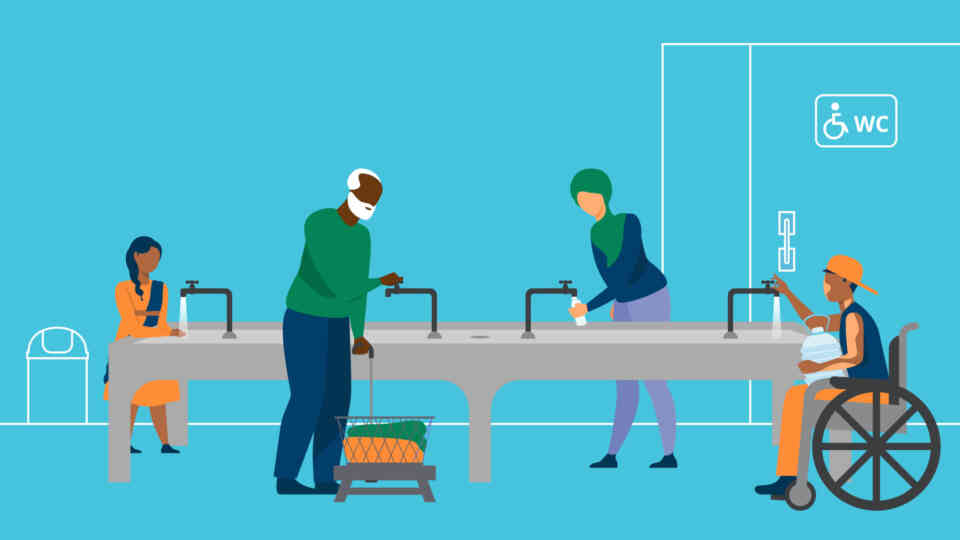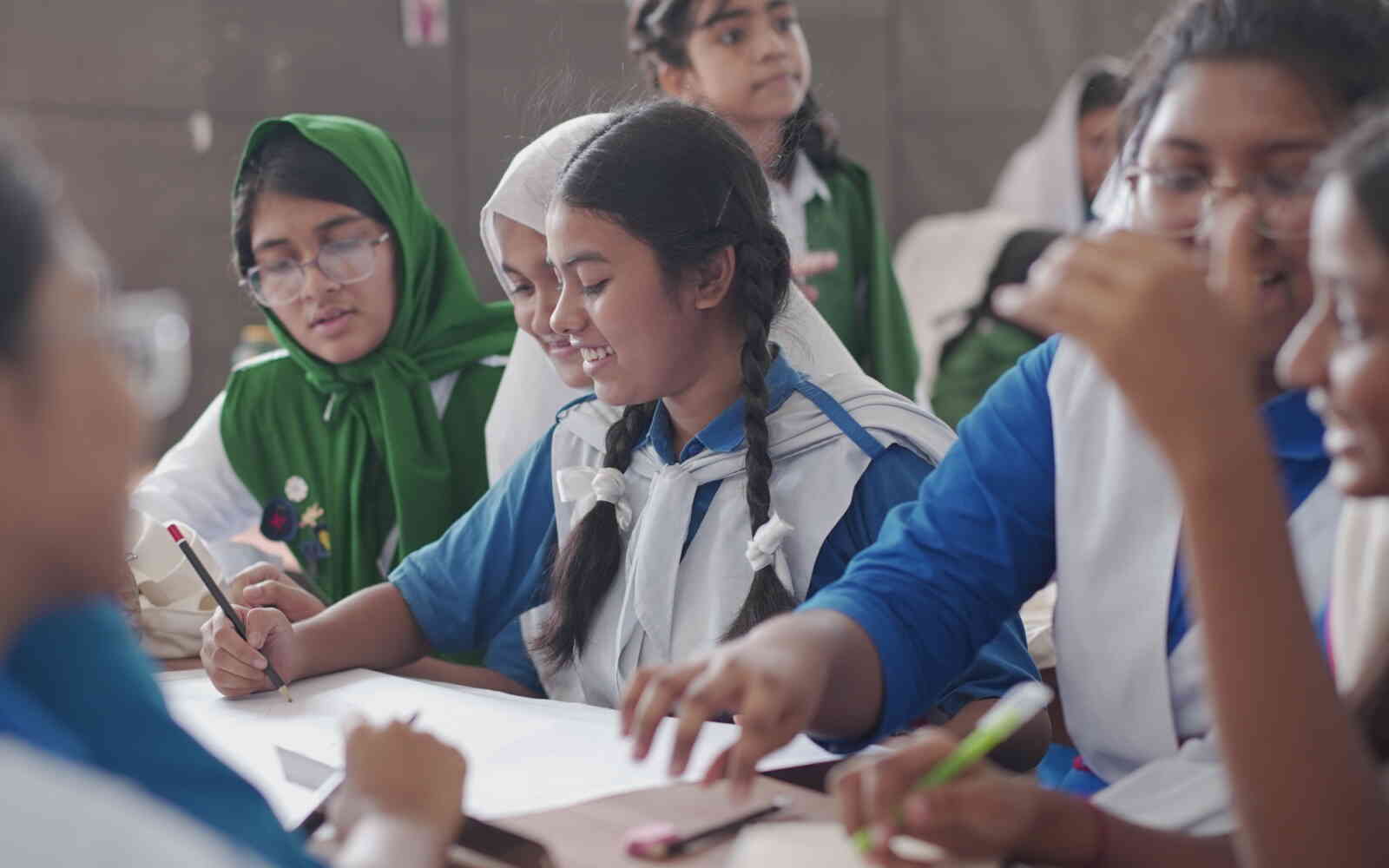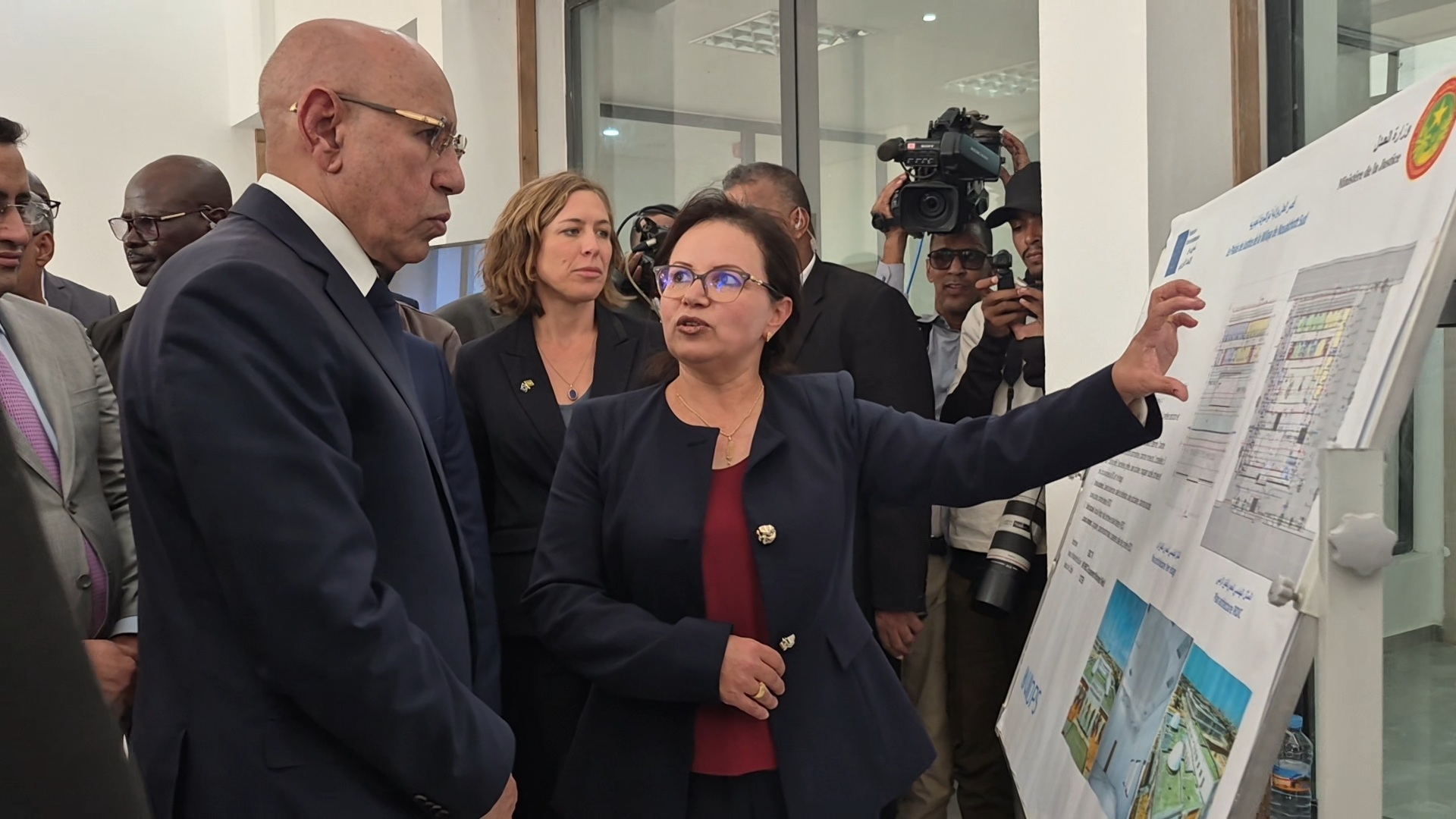The United Nations Office for Project Services (UNOPS)
Developing inclusive water, sanitation and hygiene infrastructure
UNOPS, in collaboration with UNICEF, the International Labour Organization (ILO), WaterAid and Arup, published new guidelines for developing inclusive water, sanitation and hygiene (WASH) infrastructure.
Around the world, more than 2 billion people lack access to safely managed water, sanitation and hygiene services, with conflicts and climate change exacerbating the issue.
Unsafe and insufficient WASH facilities, especially in rural and remote areas, can lead to increased health complications for older people, persons with disabilities and children. They also reinforce cycles of poverty, inequality and deprivation – particularly for women, children and marginalized groups, who are disproportionately impacted by a lack of equitable access to water and sanitation.
Launched on World Water Day, the guidelines address the knowledge gap on ways to practically implement inclusive approaches to WASH infrastructure development, particularly in developing countries and fragile contexts.
Climate change, conflicts and water pollution are widening the gap to ensuring clean water and sanitation for all, especially for women and marginalized groups. Making sure that WASH infrastructure and services are inclusive is the only way to close the gap and leave no one behind.
Acknowledging how the triple planetary crisis, conflicts and pandemics impact access to WASH services, the guidelines propose approaches that consider sustainability, resilience and inclusion. It further highlights that inclusive WASH infrastructure can only be developed through a participatory and integrated approach. This entails:
Adopting an intersectional approach that addresses the diverse WASH needs of women, girls and marginalized groups, and actively works to transform harmful norms and practices related to water collection, menstrual hygiene and disability;
Enabling active and meaningful participation of women and marginalized groups across all stages of WASH infrastructure development, including Indigenous peoples who have long been stewards of the natural environment; and
Recognizing the interdependence of inclusion, sustainability and resilience, and taking a cross-sectoral perspective that considers WASH alongside other infrastructure sectors such as energy, waste management and transport.
“The ILO recognizes that access to safe water, sanitation and hygiene is key to meeting basic human needs. It directly impacts on health and well-being, and affects people’s ability to engage in meaningful and productive activities,” said Mito Tsukamoto, Branch Chief, Employment in Investments, for ILO’s Employment Policy, Jobs Creation and Livelihoods Department.
Drawing on project case studies from Bangladesh, Malawi, Nepal and more, the guidelines illustrate the diverse challenges faced by different groups, and provide recommended actions and resources to strengthen the capacity of governments, infrastructure practitioners and other stakeholders to address these.
“We are proud to work with UNOPS on their approach to changing the way we plan, design, manage and commission inclusive WASH infrastructure for all,” said Mark Fletcher, Global Water Business Leader at Arup.
“This approach overcomes the systemic barriers that diverse social groups face and helps accelerate climate action together,” he added.
The guidelines are the second volume in a series of publications focused on developing inclusive infrastructure. The first volume provided guidance on developing inclusive transport infrastructure to help advance climate action and ensure no one is left behind.










